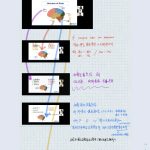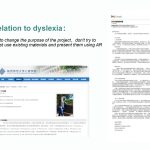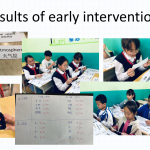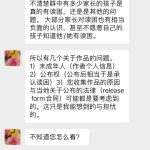Dyslexia and eye movement analysis

Eye movement analysis (OMA) is one of the most effective methods for studying reading. Compared with traditional behavioral techniques, eye… Read More »
One of the ideas for one part of my work (draft)

“A little child surrounded by the accusations of parents and the world” Will be completing this work in the next… Read More »
Attend a conference on the topic of dyslexia

I contacted Ms. ASTA LEE, an art therapist in Singapore, who invited me to attend a recent talk on dyslexia,… Read More »
An in-depth study on dyslexia

Misconceptions of Dyslexia The University of Michigan, Dyslexia Help website lists common myths relating to dyslexia. Some of the misconceptions regarding dyslexia are listed below. Dyslexia can be outgrown. Dyslexia is lifelong. Yearly monitoring of phonological skills from first through twelfth grade shows that the disability persists into adulthood. Although many students with… Read More »
Intervention 1 — feedback from experts

After I did my first intervention, I explained my plan to two experts, JING JING and Peng. And they gave… Read More »
Intervention 1 — Feedback from Diana

MAY 30 -A great deal of research is required, starting with research in the area of diagnosing dyslexia. The expense… Read More »
Intervention 1 — Result

Last week, thanks to my mother (who is a primary school teacher), she helped me to select 8 students in… Read More »
Project 6: WHAT WHY HOW WHAT IF (My early intervention design)

I wanted to test my opinion on whether AR can really improve a child’s interest and reading skills. Last week,… Read More »
Project 6: WHAT WHY HOW WHAT IF ( WWHI Proposal )

WHAT: What is the subject or area that you intend to research? What is the precise the question that you… Read More »
